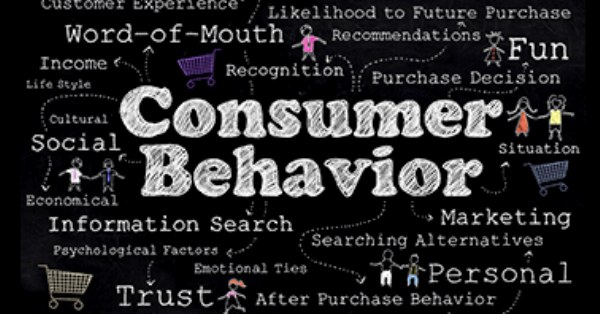
The term “consumer” refers to an individual who buys goods and services for personal use. The consumer makes the decision on whether to purchase a product or not; thus the consumer is the target of marketing strategies. From an economic perspective, consumer needs control the demands for goods and services. These needs may include unique wants, wishes, and desires, as well as emotional attachments towards products and services. But there is a difference between want and need. Need is the necessity of a consumer whereas a want is the wish or aspiration of the consumer which he/she wants to achieve.
Why Is it important to study consumer behavior from the marketer’s viewpoint?
Importance of Consumer Behavior as follows:
- Production Policies
- Decision Regarding Channels of Distribution
- Exploiting Marketing Opportunities
- Consumers’ preferences are changing and becoming highly diversified.
- Price Policies
- Decision Regarding Sales Promotion
- Consumers do not always act or react predictably
- Rapid introduction of new products
- Implementing the marketing concept
The personality of the consumer represents the whole person. Individuals differ from each other on the basis of personality. Personality refers to the set of traits and behaviors that characterize an individual. According to Fred Luthans, “Personality will mean how people affect others and how they understand and view themselves, as well as their pattern of inner and outer measurable traits and the person-situation interaction.” Thus, personality refers to the sum total of the internal and external traits of an individual, which are relatively stable and which make the individual different from others.
Similarly, the consumer’s perception is understood as the act of seeing what is there to be seen. But what is seen is influenced by the individual, the object, and the situation. “The study of perception is concerned with identifying the processes through which we interpret and organize sensory information to produce our conscious experience of objects and object relationship.” Perception has implications in such areas as employee selection, training, performance evaluation, testing one’s loyalty to the organization, and in deciding on appropriate managerial practices based on Theory X and Theory Y assumptions (Mc Gregor’s theory of motivation). Perception Process- Perception process comprises five important stages; receiving, selecting, organizing, interpreting, and reacting to the stimuli.
What are the major factors, which shape the personality of a consumer?
Following are the major factors which shape the personality of an individual:
- Biological Factors
- Family and Group Factors
- Situational Factors
- Environmental Factors
- Psychological Factors
- Other Factors
Biological Factors
In a personality, biological characteristics contribute to a great extent to determine an individual’s personality. These factors mainly comprise of Heredity or Genetics, Brain, Physical Features, Physical Abilities, and Gender.
Family and Group Factors
In shaping an individual’s personality family and Group factors also plays a vital role. These are the primary factors which shape the personality. There one could find great degree of attitude feelings values and emotions resemblance in people according to their family member and the group they consider closely and ideally. The sub-factors like; home environment, family members, family situation, social groups are major to play a role in shaping personality.
Environmental Factors
In an individual’s personality, Environmental factors contribute to a great extent. These factors comprise of Culture, subculture, life experiences one has collected. Every Culture has its own subcultures, each with its own views about such qualities as moral values and standards, cleanliness, style of dress, and definitions of success. The cultural sub-group exerts its influence on personality. All boys are expected to show certain personality traits (as compared with girls), but it is considered natural in any culture for boys and girls to have predictable differences in personality merely because they belong to or the other sex.
Situational/ Contingency Factors
Above all the factors we discussed so far, it’s a situation which going to decide how, why and in what manner a person is going to behave or one’s personality could be. Therefore, it’s the contingency which plays a vital role in determining one’s behavior. Like; in a normal situation every individual behave or show similar personality For free study notes log on: www.gurukpo.com but if the situation is adverse individuals show different set of behaviors. And, in this, we can find some time the hidden personalities or split personalities also.
Psychological Factors
As suggested and discussed by lots of theorists time to time psychological factors like superego, attitudes, ability to perform, self-esteem, locus of control plays a vital role. In shaping a personality, the psychology of an individual plays a very important role. Because considering all other factors it’s human psychology only which is going to perform, decides one’s behavior and accordingly shapes the personality.
Other Factors
Apart from these major factors like; biological, family and group, environmental considerations, situation, etc. there are other factors which play a vital role in shaping personality. The hidden factors sometimes could be any determines the personality. The motives of a person also play vital role as a determinant of personality.
Market Research
Marketing research is the function that links the consumer, customer, and public to the marketer through information. Information used to identify and define marketing opportunities and problems; generate, refine and evaluate marketing actions; monitor marketing performance; and improve understanding of marketing as a process.
The marketing research specifies the information required to address these issues, designs the method for collecting information, manages and implements the data collection process, analyzes the results and communicates the findings and their implications. Thus Marketing research is the systematic and objective identification, collection, analysis, dissemination, and use of information for the purpose of improving decision making related to the identification and solution of problems and opportunities in marketing.
